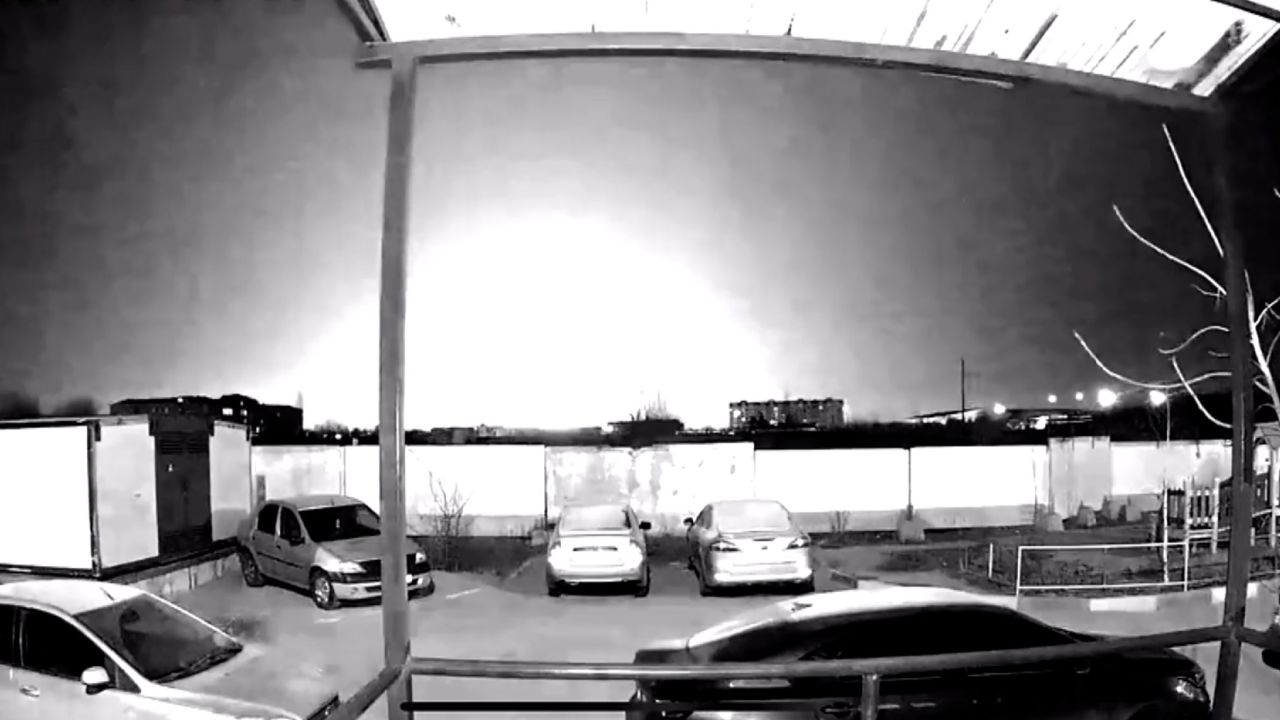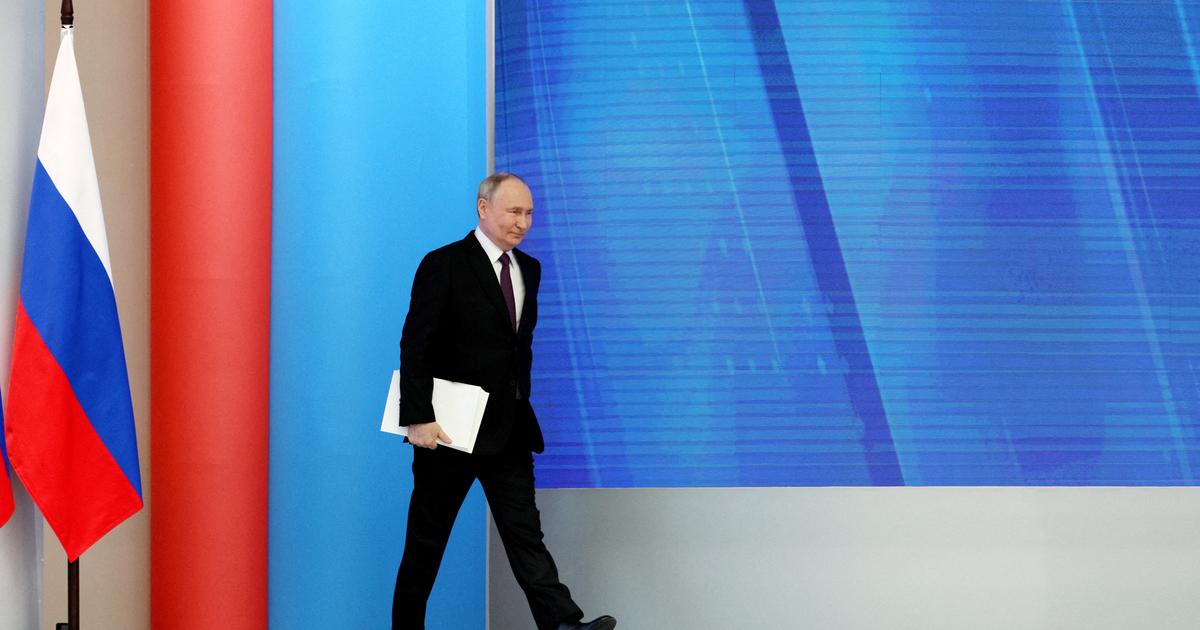Imposing explosion in the city of Engels, Russia 1:01
(CNN) --
Moscow's allegation that Ukrainian drones attacked two air bases inside Russia has once again raised the thorny question of the escalation in nine months of war.
The attacks are an extraordinary violation of Russia's assumptions that it can protect its deep interior, from whose safe harbors it has launched strategic bombing strikes that have caused carnage across Ukraine with relative impunity.
Attacks on Russian airbases highlight new Ukrainian drone program
These are airbases located deep inside Russia, and whatever the truth of the attacks, whether they represent a new long-distance drone capability that Ukraine has announced, or if there is another explanation, this is not something that was anticipated. happened when Russian President Vladimir Putin launched his "10-day invasion" in February.
Week by week, there are more signs that the military machine in Moscow cannot do what it says in its propaganda.
Images released by the Russian media show the aftermath of an alleged drone strike Tuesday at an airfield in Kursk, Russia.
(Credit: MIC IZVESTIA/IZ.RU/Reuters)
On Tuesday, a Russian official claimed that another drone strike had hit a Russian airfield in Kursk, closer to the Ukrainian border.
Ukraine has neither confirmed nor denied responsibility for the blasts, in line with Kyiv's policy of official silence on attacks inside Russia or in Russian-occupied Crimea.
An adviser to President Volodymyr Zelensky appeared to gloat over the attacks, cryptically tweeting that "if anything is launched into other countries' airspace, sooner or later unknown flying objects will return to square one."
Russian state news agencies compounded the humiliation by adding on Monday that the first two airfields in question had been photographed by a commercial US satellite imaging company over the weekend.
advertising
The low-tech tools employed in this embarrassment shatter the illusion of Russia's NATO equality.
A satellite image shows a general view of the Engels airbase, in Saratov, Russia, on December 4.
(Credit: Maxar Technologies/Reuters)
Russian humiliation is often accompanied by concerns that it could escalate the conflict.
But it's hard to know what else Russia could do to Ukraine that it hasn't already done.
She has razed cities, hit civilian infrastructure ruthlessly and relentlessly where she could, killed thousands of civilians and even more soldiers, and bombed maternity hospitals and shelters marked "Children."
At some point, the laborious assumption that Russia has magical, not apocalyptic, buttons left to push will begin to fade.
Let's first discuss why a Russian nuclear attack seems out of the question, at least for now.
After months of deeply chilling nuclear rhetoric — ranging from possible "accidents" at nuclear power plants, to talks without evidence about Ukraine's use of a "dirty bomb" to outright threats invoking Moscow's nuclear arsenal — Russia seems to have relaxed the rhetoric of Armageddon.
Fight cold!
Winter is coming and Russia is concentrating its attacks on leaving Ukraine without electricity
China has been very clear in stating that it should stop talking about it.
Indian too.
Late last month, Putin found himself in an extraordinary moment, signing a decree with the president of Kazakhstan in which he reiterated that nuclear war can never be won and must never be fought.
It was a reinforcement of a 2006 declaration between Moscow and the Central Asian states that he then intended to lead as a geopolitical power.
How times have changed: Moscow no longer looks to the West as it began to do 16 years ago.
And Kazakhstan, reliant as recently as January on Moscow to quell internal unrest, looks to China and Europe for its future, appearing to push Putin to promise again that nuclear weapons are bad.
None of this excludes the remote possibility that the Kremlin will give in to the lunatics of state television talk shows and unleash its worst weapons.
But it is clear that everyone Putin knows is now reminding him of the dire consequences he would have if he did.
So what is left for Russia?
Chemical weapons are a possibility, but they may have been part of the warnings you've received not to use nuclear force.
Moscow's options appear to be limited to the more precise or savage use of the same conventional brutality that it is currently unleashing on Ukrainian cities on an almost daily basis.
This is the most detrimental side effect of the public exhaustion of the Russian Army: there is no real "fear factor" left.
State television commentators liked to whisper months ago that Russia had so far fought with its "gloves on", but it is clear that it has long since taken them off, that its opponent has learned to dodge its blows and that it has also raised a knife to the ring.
This blatant debasement of Russia as a power was compounded by hard-to-confirm claims by Ukrainian officials that more than four out of five Russian missiles fired on Monday were intercepted by Kyiv's beefed-up air defense systems.
Again, this is another of the certainties that were held about the Russian Army that has been shattered.
Its attack and air defense systems are being outclassed in the same week.
Where does this lead us?
The West is in a bind.
The better the Ukrainian military behaves on the battlefield, the less likely Kyiv will agree with some European capitals that peace talks with Russia are necessary.
When you're winning, why agree to talk about a way to lose?
And NATO cannot begin to slow down arms supplies or face criticism, even from its own citizens, that it is leaving the Ukrainians to fend for themselves.
In reality, it cannot require Kyiv to accept the permanent loss of part of its territory as part of a deal without essentially endorsing the Russian invasion.
Instead, the dynamic is totally anti-Russian.
When they are weak, it is not that they are suddenly strong, it is that they are weak, to paraphrase the private analysis of a Western official.
Do these slow, continuous humiliations bring closer the day when Putin will fight to control his own hierarchy, or succumb to pressure to withdraw from the territory he has occupied since 2014?
While waiting for a response, the trajectories do not change.
Ukraine: cold in winter, but winning and little by little better armed.
Russia: cold in winter, but losing and gradually rotating militarily.
The key variable is patience and Western support.
war russia








